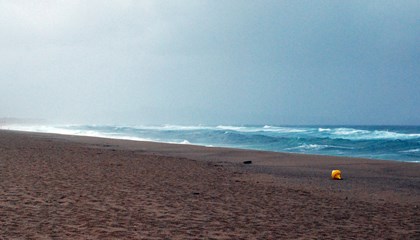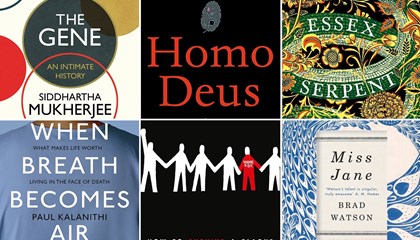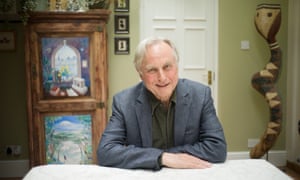
Richard Dawkins, author of The Selfish Gene and The God Delusion
There’s a serious risk of climate catastrophe and it could be soon. Another alarmingly plausible possibility during the present century is that weapons of mass destruction, which are designed to deter, will be acquired by deluded people for whom deterrence has no meaning. Assuming we survive such manmade disasters, external peril may be averted by technology growing out of the brilliant feat of landing on a comet. The dinosaurs’ world ended when a comet or large meteorite unleashed titanic destructive forces. That will eventually happen again, and smaller but still dangerous strikes are a perennial danger in every century. Telescopes of the future will improve the range of detection, increase the warning time, and give engineers the notice they will need to intercept the bolide and nudge it into a harmless orbit.
In the world of science, DNA sequencing will become ever faster and cheaper and this will revolutionise medicine, taxonomy and my own field of evolution, not to mention forensic evidence in courts of law. Embryology and cell biology will advance mightily. Novel imaging techniques may enable palaeontologists and archeologists to see down into the ground without digging it up. The rendering of virtual reality will improve to the point where the distinction from external reality may become blurred. I expect unmanned space exploration to continue, albeit with economically imposed hiatuses. Out beyond 50 years, self-sustaining colonies may be established on Mars. Human travel to other star systems lies way beyond 50 years, but radio communication from extraterrestrial scientists is an ever-present possibility. However, the intervening light centuries will rule out conversation.
- Richard Dawkins will present a keynote address about his career on 11 October.
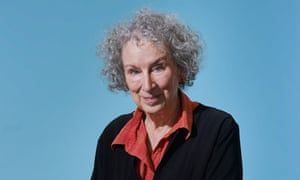
Margaret Atwood, author of Hag-Seed
Will we still have a liveable planet 50 years from now? Kill the oceans and it’s game over for oxygen-breathing mid-range mammals – the oceans make 60 to 80% of our oxygen. Superheating them and dumping them full of plastic may spell our doom. I hope that we’ll be smart enough to avoid this fate. From ideas proposed in my fiction, many are equally horrible, but it seems as if the use of the blood of young people to rejuvenate rich older people – as posited in The Heart Goes Last – is already in process. I do try to avoid predicting “the future” because there are so many variables; thus, so many possible futures. But here’s a safe bet: in 25 years I won’t be on the planet, unless of course I get my tentacles on some of that rejuvenating blood.
- Margaret Atwood will talk about Hag-Seed, a re-imagining of Shakespeare’s The Tempest on 6 October.

If I could communicate 100 years into the future and talk to the incumbent Professor for the Public Understanding of Science at the University of Oxford (which I can confidently predict won’t be me, even if some scientists think that we are about to cure ageing), I wonder if he/she/it will know it all. Will we have answered all the big open questions of science? I think we’ll have understood what dark matter is and what is causing the accelerated expansion of the universe. But are there questions to which we’ll never know the answer, no matter how long we wait? Could we ever know if the universe is infinite? Can we find out what happened before the big bang? I predict that science will never know it all. It would be terrible if we did. Science is a living, breathing subject because of what we don’t know. But might there be things we’ll never know? That’s a bit more frightening for a scientist.
- Marcus du Sautoy will deliver a keynote address on the limits of human knowledge on 16 October.
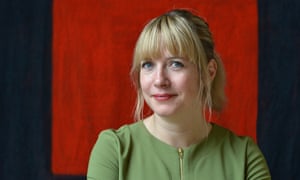
Lauren Beukes, author of The Shining Girls and Slipping
- Lauren Beukes will discuss South African sci-fi and the future of women and girls on 16 October.
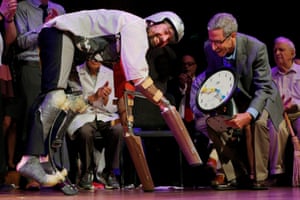
Thomas Thwaites, 2016 Ig Nobel prizewinner and author of GoatMan: How I Took a Holiday from Being Human
- Thomas Thwaites will talk about Transhumanism and his experience of using prosthetic limbs to live as a goat on 11 October.

Gaia Vince, environmental journalist and author of Adventures in the Anthropocene
My fears for the future are that we miss the opportunity to act as a cohesive global society to address the environmental challenges we face and end up in a situation in which a small population thrives but many struggle in poverty. My hope is that instead we face up to the crisis as a cooperative species and negotiate a way to share the world’s resources between ourselves and the natural world. I do predict, however, that in 50 years’ time the majority of our energy will be generated from carbon-free sources.
- Gaia Vince will be on a panel discussing climate change and the future of the planet on 11 October.
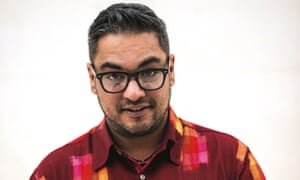
Nikesh Shukla, author and editor of The Good Immigrant
I worry a lot about the world we’re handing over to young people. I’m a youth worker so it’s on my mind a lot. My biggest fear is we’re handing over an unfixable world, one where lines in the sand have been drawn and the only way to undo all of this is for a revolution. Or for the west to no longer be a cultural leader. It’s damn sure on its way to not being an economic one. I don’t know what the future looks like. I try to be optimistic, because you have to be, especially when you have children. But I feel as if what has happened this year will have repercussions for the future that will outlive us all.
- Nikesh Shukla will be talking about the essay collection The Good Immigrant alongside contributors on 6 October.
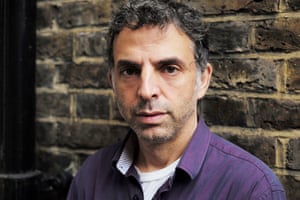
Etgar Keret, author of Seven Good Years
As a parent, I think that the greatest challenge is and will always be to serve as an interface between a child and a world that often makes very little sense. Technology may advance but human behaviour will stay unpredictable and often difficult to explain. I find the present tough enough to handle. When I’m done with sorting that, I’ll be ready to deal with the next challenge – but broadly speaking, things will get better, then worse and then better again.
- Etgar Keret will be discussing what the future holds for the next generation on 16 October.



